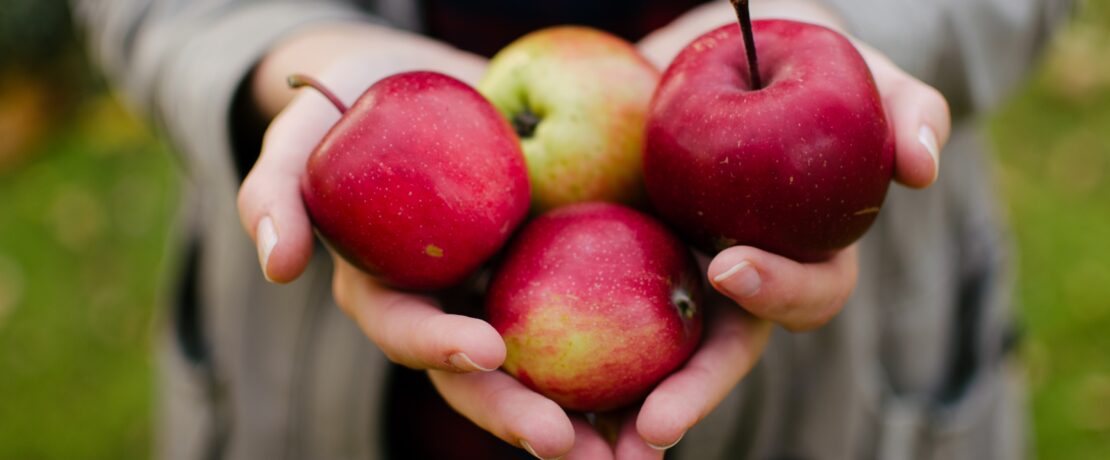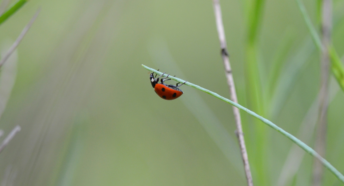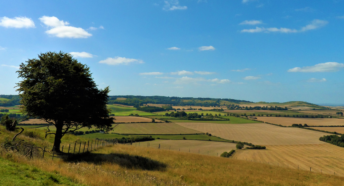The humble apple and a vision for change
October, a time of falling leaves and whirling winds, is also the heart of apple season in the UK. This month we explore how a seemingly unassuming fruit signals the need for change in our food system.
As the seasons shift and we travel further into autumn, the fruit harvest moves from soft, plump blackberries (the last of them fruiting in September) and juicy plums, to orchard fruit such as apples and pears. With around 2,500 varieties of apples here in the UK, you’d have to eat over six varieties a day to get through them all in a year! Walk into a supermarket, however, and you’re only offered a small handful of choices, with most shipped from abroad.
Customs and folklore
Although the apple does not originate here (in fact it started life in the mountains of Kazakhstan, this humble fruit is firmly established as a much-loved food icon. We’re reminded that ‘an apple a day keeps the doctor away’, and it features in many modern customs (think apple bobbing at Halloween), but the apple’s status goes back further into prehistory, when it was supposedly connected to magic and otherworldly journeys undertaken by druids – the priests, teachers and judges of pre-Roman Britain.
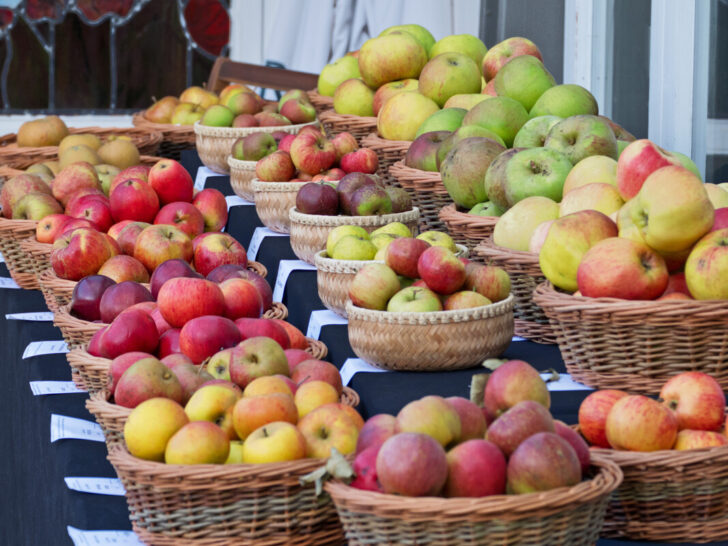
The apple’s religious significance can also be seen in the Genesis creation narrative (think of Eve plucking the apple from the tree), and in many medieval Christian traditions. Come Twelfth Night (5 January), you might still find communities wassailing the oldest apple tree in the orchard, giving offerings of cider-soaked toast and traditional wassail (‘good health’) songs to secure a plentiful harvest the following year. Although this agricultural custom is said to have emerged in the 13th century, it may have been connected to earlier pagan traditions, and has re-emerged as part of the folk revival in recent years.
Apple Day
Since 1990, this resurrection of land-based customs has been supported by the celebration of Apple Day, an autumn festival introduced by the charity Common Ground, held on 21 October each year and described as ‘a celebration and a demonstration of the variety we are in danger of losing, not simply in apples, but in the richness and diversity of landscape, ecology and culture.’ It is a reminder that if we are to embrace a biodiverse food system, we must avoid the monoculture offered as the norm, instead seeking out local produce where possible, nurturing apple trees in our local green spaces and parks, or planting different varieties in our gardens and allotments.
If we continue to stick with supermarket favourites the gala and braeburn (both natives of New Zealand), rare apples such as ashmead’s kernel or the Cornish gilliflower are at risk of disappearing altogether. But what’s the solution?
A vision for change
Naturalist and writer Benedict Macdonald, in an article for CPRE, suggests that ‘Much as we praise traditional orchards, they are headed for extinction by 2050.’ At a time when so much of our food is imported, The Orchard Project offers a solution: for everyone in cities across the UK to be within easy reach of a thriving community orchard. Through planting new orchards, restoring veteran orchards, and educating schools and communities, they seek to empower people to reduce their food miles and embrace local produce.
Strategies like this need not be limited to apples. This vision for change has the potential to expand and impact our wider food-buying habits, and feeds the narrative on food, farming and nature, seeking to create sustainable farming that works for people and nature while helping us resist climate breakdown. While CPRE has long advocated for a country-wide need for change, celebrations such as Apple Day offer an opportunity for us all to be a part of the conversation.
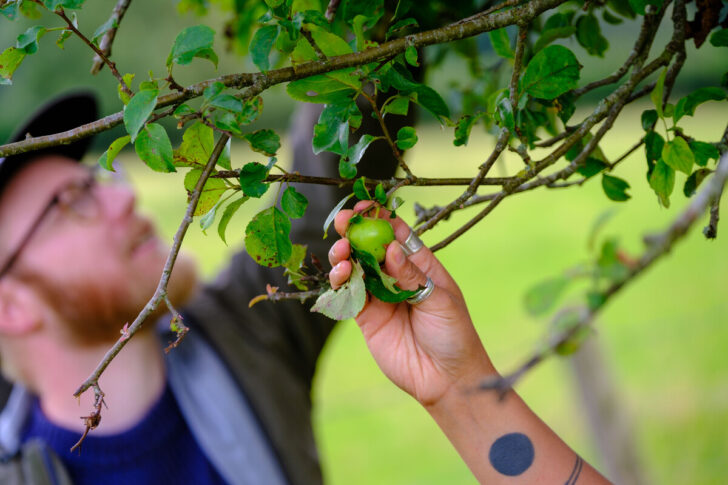
Throughout October and into early November, you’ll often find local celebrations of Apple Day, and this is a great way to get started if you don’t know your red pippin from your Worcester pearmain. You might find apple tasting, cider making, games and more – all inspired by this autumnal star that is probably sitting in your kitchen right now.
For more information about Apple Day events, head to the National Trust website, or check out other events through village newsletters, websites and local councils.
About the author
Eleanor Cheetham is a writer and teacher based in Lincolnshire, forever inspired by seasonal change and the folklore and stories of the land.
